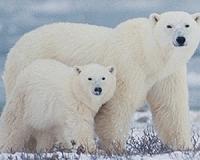| . |  |
. |
Paris (AFP) Nov 21, 2010 Emissions of fossil-fuel gases that stoke climate change edged back less than hoped in 2009 as falls in advanced economies were largely outweighed by rises in China and India, scientists said Sunday. For 2010, emissions are likely to resume their upward track, scaling a new peak, they warned. Annual emissions of carbon dioxide (CO2) from the burning of oil, gas and coal were 30.8 billion tonnes, a retreat of only 1.3 percent in 2009 compared with 2008, a record year, they said in a letter to the journal Nature Geoscience. The global decrease was less than half that had been expected, because emerging giant economies were unaffected by the downturn that hit many large industrialised nations. In addition, they burned more coal, the biggest source of fossil-fuel carbon, while their economies struggled with a higher "carbon intensity," a measure of fuel-efficiency. Emissions of fossil-fuel gases in 2009 fell by 11.8 percent in Japan, by 6.9 percent in the United States, by 8.6 percent in Britain, by seven percent in Germany and by 8.4 percent in Russia, the paper said. In contrast, they rose by eight percent in China, by 6.2 percent in India and 1.4 percent in South Korea. As a result, China strengthened its unenvied position as the world's No. 1 emitter of fossil-fuel CO2, accounting for a whopping 24 percent of the total. The United States remained second, with 17 percent. Fossil fuels account for 88 percent of all emissions from CO2, the principal "greenhouse gas" blamed for trapping the Sun's rays and causing global warming, the driver of potentially catastrophic changes to Earth's climate system. Concentrations of CO2 in the atmosphere from all sources reached a record high of 387 parts per million (ppm), the study said. "The 2009 drop in C02 emissions is less than half that anticipated a year ago," said Pierre Friedlingstein, a professor at the University of Exeter in Britain, which led the study. "This is because the drop in world gross domestic product was less than anticipated and the carbon intensity of world GDP, which is the amount of CO2 released per unit of GDP, improved by only 0.7 percent in 2009 -- well below its long-term average of 1.7 percent." There was one spot of good news, though. CO2 emissions from deforestation fell sharply, thanks to slowing forest loss in tropical countries and to a pickup in reforestation in Europe, temperate zones of Asia and North America. In the 1990s, emissions from deforestation were more than 25 percent of the global total. In 2009, though, they were only 12 percent. Despite this, the news for 2010 is likely to be grim. CO2 from fossil fuels is likely to increase by more than three percent if predictions of 4.8 percent in world economic growth are right. This means the fall seen in 2009 will have been just a blip as carbon pollution resumes its fast upward track. The report by the Global Carbon Project, linking leading climate scientists around the world, was published in the run-up to the November 29-December 10 UN climate talks in Cancun, Mexico. The conference aims at breaking the deadlock on reducing greenhouse-gas emissions and channelling aid to poor, vulnerable countries after the near-fiasco at the world climate summit in Copenhagen.
Share This Article With Planet Earth
Related Links Climate Science News - Modeling, Mitigation Adaptation
 Dire Messages About Global Warming Can Backfire
Dire Messages About Global Warming Can BackfireBerkeley CA (SPX) Nov 19, 2010 Dire or emotionally charged warnings about the consequences of global warming can backfire if presented too negatively, making people less amenable to reducing their carbon footprint, according to new research from the University of California, Berkeley. "Our study indicates that the potentially devastating consequences of global warming threaten people's fundamental tendency to see the wo ... read more |
|
| The content herein, unless otherwise known to be public domain, are Copyright 1995-2010 - SpaceDaily. AFP and UPI Wire Stories are copyright Agence France-Presse and United Press International. ESA Portal Reports are copyright European Space Agency. All NASA sourced material is public domain. Additional copyrights may apply in whole or part to other bona fide parties. Advertising does not imply endorsement,agreement or approval of any opinions, statements or information provided by SpaceDaily on any Web page published or hosted by SpaceDaily. Privacy Statement |